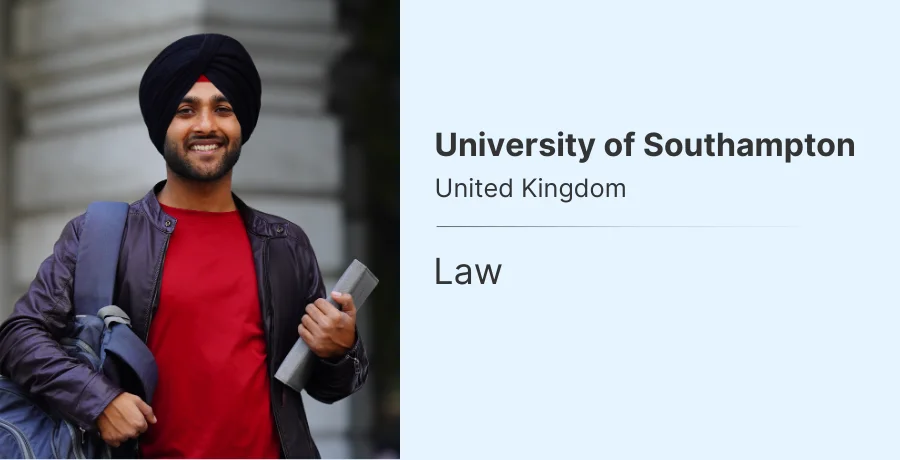University of East Anglia (UEA)
University – Highlights
Established in 1963, the University of East Anglia (UEA) is a prestigious university located in Norwich, England. Known for its excellent teaching standards and research output, UEA is a hub for academic excellence and innovation. The university is home to a diverse student body and offers a wide range of undergraduate, postgraduate, and doctoral programs. UEA’s commitment to providing top-notch education is reflected in its QS World University Rankings, consistently placing it among the top 200 universities globally. The campus boasts state-of-the-art infrastructure, including modern lecture halls, research labs, and extensive library facilities.
- Year of Establishment: 1963
- QS Ranking: Top 200 globally
- Other Rankings:
- Top 20 in the UK (Complete University Guide)
- Top 30 for research quality (Times Higher Education)
- Top 100 for student satisfaction (National Student Survey)
- Ranked 14th for graduate prospects (Guardian University Guide)
- Top 50 for Environmental Sciences globally (QS World Rankings)
- Infrastructure: Modern lecture halls, research labs, extensive library facilities
- Teaching Faculty: Experienced and highly qualified experts in various fields
- Funding: Significant funding for research and development from various sources
- Accreditation: Recognized by multiple national and international accreditation bodies
University - Admissions
Admissions to the University of East Anglia are competitive, with a significant percentage of international students. The university operates on a semester system with multiple intakes throughout the year. UEA’s campus offers extensive infrastructure and facilities to support student learning and research.
Percentage of International Students: Approximately 30%
Semesters and Intakes: Multiple intakes throughout the year
Infrastructure: State-of-the-art campus with modern facilities
UG Admissions
- High school diploma or equivalent with a minimum GPA.
- English language proficiency test scores (IELTS, TOEFL).
- Personal statement and letters of recommendation.
- Specific program requirements (e.g., portfolio for art programs).
- Interview (for certain programs).
PG Admissions
- Bachelor’s degree with a minimum GPA.
- English language proficiency test scores (IELTS, TOEFL).
- Personal statement and letters of recommendation.
- Relevant work experience (for certain programs).
- Interview (for certain programs).
Ph.D. Admissions
- Master’s degree with a minimum GPA.
- Research proposal outlining the intended research project.
- English language proficiency test scores (IELTS, TOEFL).
- Letters of recommendation from academic or professional references.
- Interview with potential supervisors.
To know more about other universities in the UK, click here.
Eligibility Criteria
UG Programs
- Accounting and Finance: Comprehensive curriculum covering financial management, accounting principles, and business strategy.
- Biological Sciences: Focus on genetics, microbiology, and ecology with hands-on laboratory experience.
- Computer Science: Covers software development, artificial intelligence, and data science.
- Economics: In-depth analysis of economic theories, quantitative methods, and policy analysis.
- Environmental Sciences: Interdisciplinary approach to studying environmental issues and sustainability.
- Law: Comprehensive study of legal principles, case law, and legal systems.
- Psychology: Focus on cognitive psychology, behavioral science, and clinical psychology.
PG Programs
- Business Administration (MBA): Advanced study in business management, leadership, and strategy.
- Data Science: Focus on data analytics, machine learning, and big data technologies.
- Education: Specializations in curriculum development, educational leadership, and pedagogy.
- International Relations: Study of global politics, international conflicts, and diplomatic relations.
- Marketing: Advanced concepts in consumer behavior, digital marketing, and brand management.
- Public Health: Focus on epidemiology, health policy, and community health.
University Programs
The University of East Anglia offers a diverse range of programs designed to cater to the academic and professional aspirations of students. These programs are tailored to provide in-depth knowledge and practical skills in various fields.
UG Programs
- Accounting and Finance
- Biological Sciences
- Computer Science
- Economics
- Environmental Sciences
- Law
- Psychology
PG Programs
- Business Administration (MBA)
- Data Science
- Education
- International Relations
- Marketing
- Public Health
Accommodation
On-campus accommodation: UEA offers a range of on-campus housing options, including single and shared rooms, with modern amenities and 24/7 security.
Off-campus accommodation: There are numerous off-campus housing options available, including private rentals and shared apartments, within close proximity to the university.
Housing options: Single rooms, shared apartments, private rentals.
Cost of Tuition Fees
| Type | Approximate Fees |
|---|---|
| Undergraduate | £15,000 - £20,000 per year |
| Postgraduate | £16,000 - £22,000 per year |
Cost of Living
| Category | Approximate Cost |
|---|---|
| Rent, travel, utilities | £600 - £800 per month |
| Food & Drink, entertainment | £200 - £300 per month |
Scholarships
The University of East Anglia offers a variety of scholarships to support students financially. These scholarships are awarded based on academic excellence, financial need, and specific criteria set by donors.
| Scholarship Name | Maximum Amount Offered |
|---|---|
| International Excellence Scholarship | £5,000 |
| UEA Undergraduate Scholarship | £3,000 |
| UEA Postgraduate Scholarship | £4,000 |
| Vice Chancellor’s Scholarship | £7,000 |
| Faculty of Social Sciences Scholarship | £6,000 |
| Science Faculty Scholarship | £6,000 |
| Arts and Humanities Scholarship | £5,000 |
| Norwich Business School Scholarship | £4,000 |
| Health Sciences Scholarship | £5,000 |
| International Development Scholarship | £3,000 |
To know about the UK study visa requirements, click here.
Placements
UEA offers extensive support for students seeking internships and job placements. The university boasts a high placement rate, with graduates finding employment in various sectors.
Placement rate: Approximately 90%
| Job Role | Approximate Salary |
|---|---|
| Software Developer | £30,000 - £50,000 per year |
| Financial Analyst | £35,000 - £55,000 per year |
| Marketing Manager | £40,000 - £60,000 per year |
| Research Scientist | £30,000 - £50,000 per year |
| Legal Advisor | £45,000 - £70,000 per year |
| Public Health Consultant | £50,000 - £80,000 per year |












